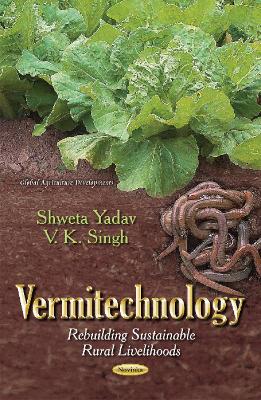Global Agriculture Developments
1 total work
Organic farming is a system approach utilizing the natural cycles and biological interactions for crop production and protection. It aims at harmonizing with nature and a method of production without destroying the environment. Vermitechnology is one of the important components of organic farming. The earthworm (verm) is now known to be a good biological element for the recovery of vermifertilizer and vermin- protein for use in agro-ecosystems, aquaculture, poultry etc. Earthworm culture, popularly called vermiculture is being widely practicised in a big commercialized manner. Therefore, it is high time to enter into the vermitechnology as a part of the biotechnology programme. In India, some companies have adopted vermiculture, but by and large the general awareness remains limited, despite the fact that several non-governmental organizations and governmental institutions are trying hard to popularize vermitechnology. This book is an attempt to help those desirous of starting a vermicutlure and vermicompost industry. Based on this rationale, the Vermiculture Research Station in Aligarh, India embarked on an extensive programme of transferring vermitechnology to the farmers back in 2000 under the Lab to Land programme. The farmers were given specialized training through field demonstrations in vermitechnology, organizing special courses and setting-up their own field units in rural areas. It is heartening to note that female farmers have also come forward in this new venture and are now producing quality vermicompost to supplement their income.
